How to Clean Denture Stains
Just like normal teeth, dentures can be at risk of staining or slight discoloration through drinks such as coffee, tea and cola. Tobacco stains caused by smoking can also be quite persistent to remove and might leave you wondering how to clean denture stains? In a previous blog article, we discussed whether drinking coffee and smoking can stain dentures, we also included a few practical tips that you could adopt to prevent coffee stains forming on your dentures. Tips included drinking water during your coffee and drinking coffee fast (e.g. in 5 minutes or less) to name a few. In this article we investigate how to clean denture stains further including; how to remove coffee stains from dentures and how to remove tobacco stains from dentures using a denture stain remover.
How to remove denture stains
Just like regular teeth, if dentures are not cared for, they may also develop white or brownish colours over time. Fortunately, there are several methods for to remove denture stains. In this article we provide information for how to remove denture stains yourself by cleaning them at home every day, keeping them looking at their best.
How to remove stains from coffee
When determining how to remove coffee stains from dentures, it is important to keep in mind that the longer time coffees stay in contact with your dentures without being removed, the higher the chance of staining as the acidic content from coffee has a longer interaction time with your dentures. Knowing this, we provide the following ways for how to remove coffee stains from dentures.
- Remove and rinse dentures after drinking coffee. Putting your dentures under running water is a good way to wash off any remaining thin films of coffee. It may be a handy idea to fill up the sink with some water first, so the dentures don’t break if you accidently drop them.
- Brush your dentures daily. Remove and clean your dentures at least daily. They can be cleaned using a moist soft-bristled toothbrush or denture toothbrush and denture cleanser.
- Soak dentures overnight using a denture stain remover. The most common homemade denture cleaners include denture bleach, vinegar, and baking soda.
How to remove tobacco stains from dentures
Tobacco stains are often difficult to remove on dentures as smoking stains over an extended period of time and it has a longer time to settle on the denture material. The key for how to remove tobacco stains from dentures is to soak dentures effectively with denture stain remover to reduce future staining. Below we have included some additional comments from clients for removing tobacco stains from dentures at home.
“i put my dentures in a glass bowl with some baking soda, then i slowly add vinegar until i see bubbles appear and let them soak overnight. smokers/coffee drinkers who wear dentures should do this. it gets them sparkling clean and it saves you buying cleaning tablets.”
“my partner cleans his with his using a mixture of denture bleach and water (half and half), then brushes with toothpaste to get the minty smell. he drinks a lot of coffee and tea and has never had stains with this method”
“i either use a combination of vinegar and baking soda, or a cap of bleach then brush with normal toothpaste. note: you should never, never use vinegar and bleach together”
Denture stain remover methods to avoid
We hope this article has been useful in learning how to clean denture stains. Results may differ depending on denture types. Below we have left you with some final tips for denture stain remover methods to avoid while taking care of your dentures at home.
- Teeth whitening toothpaste. It may be tempting to use teeth whitening toothpaste to whiten dentures, their chemical components are generally regarded as too course for dentures and can lead to abrasion of the surface.
- Abrasive cleaning materials. Toothbrushes marked as having Medium or Hard bristles, can scratch your dentures creating a dull surface. Harsh toothpastes should also be avoided.
- Hot Water. Hot water can warp your dentures and bend them out of shape, which may lead to the need for denture repairs.
In most cases, you should be able to remove denture stains through regular cleaning at home. However, for persistent stains that require more cleaning, contact our denture clinic for assistance removing surface stains and polishing your dentures to make them look like new.
Related Posts
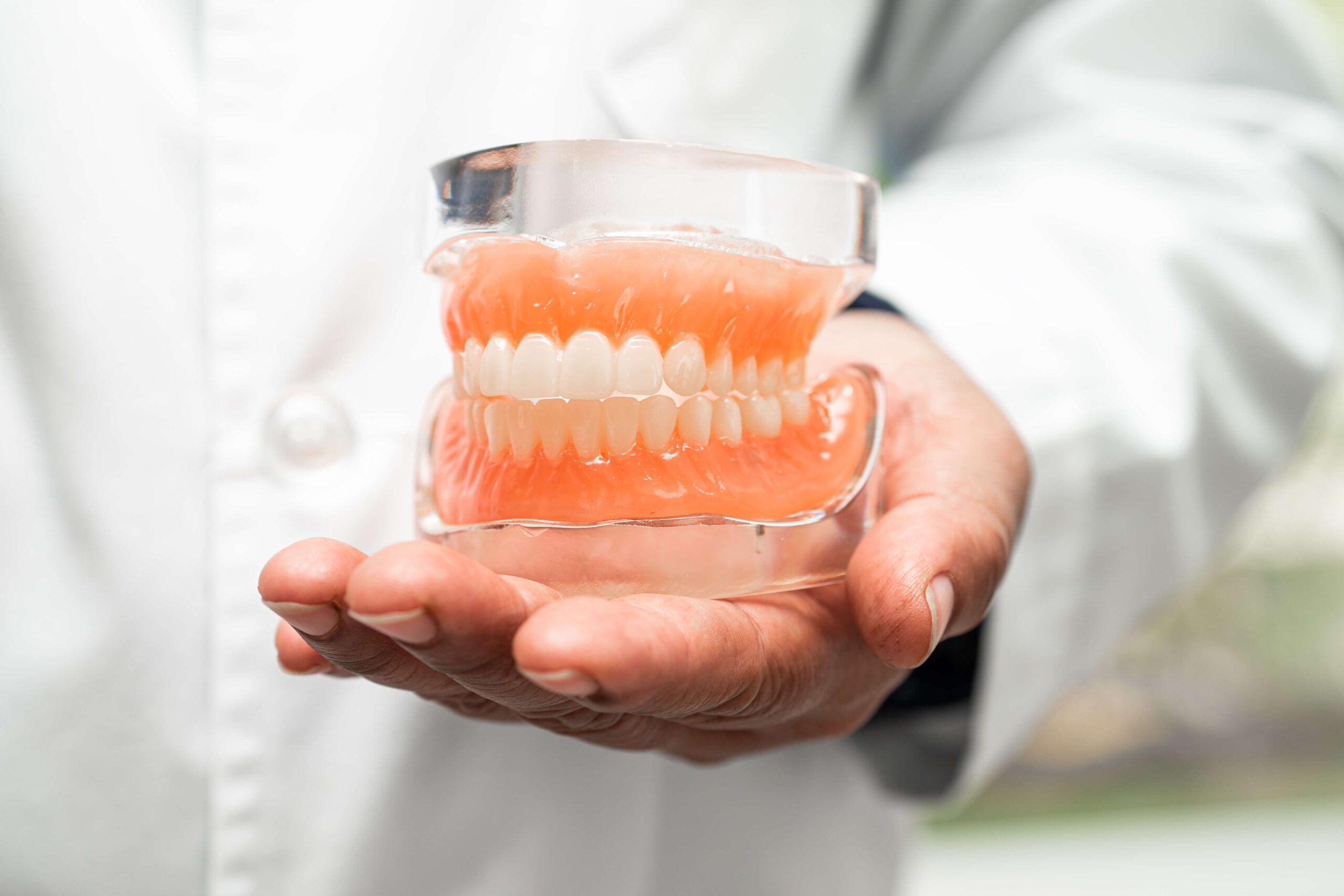
Playing with Dentures – A Guide for Musicians
Playing with Dentures – A Guide for Musicians Whether you are a seasoned musician or looking to learn a new instrument, playing with dentures presents some unique challenges. Dentures that shift around your mouth or being unable to achieve the right sound are some of the issues you may encounter while playing music with dentures,
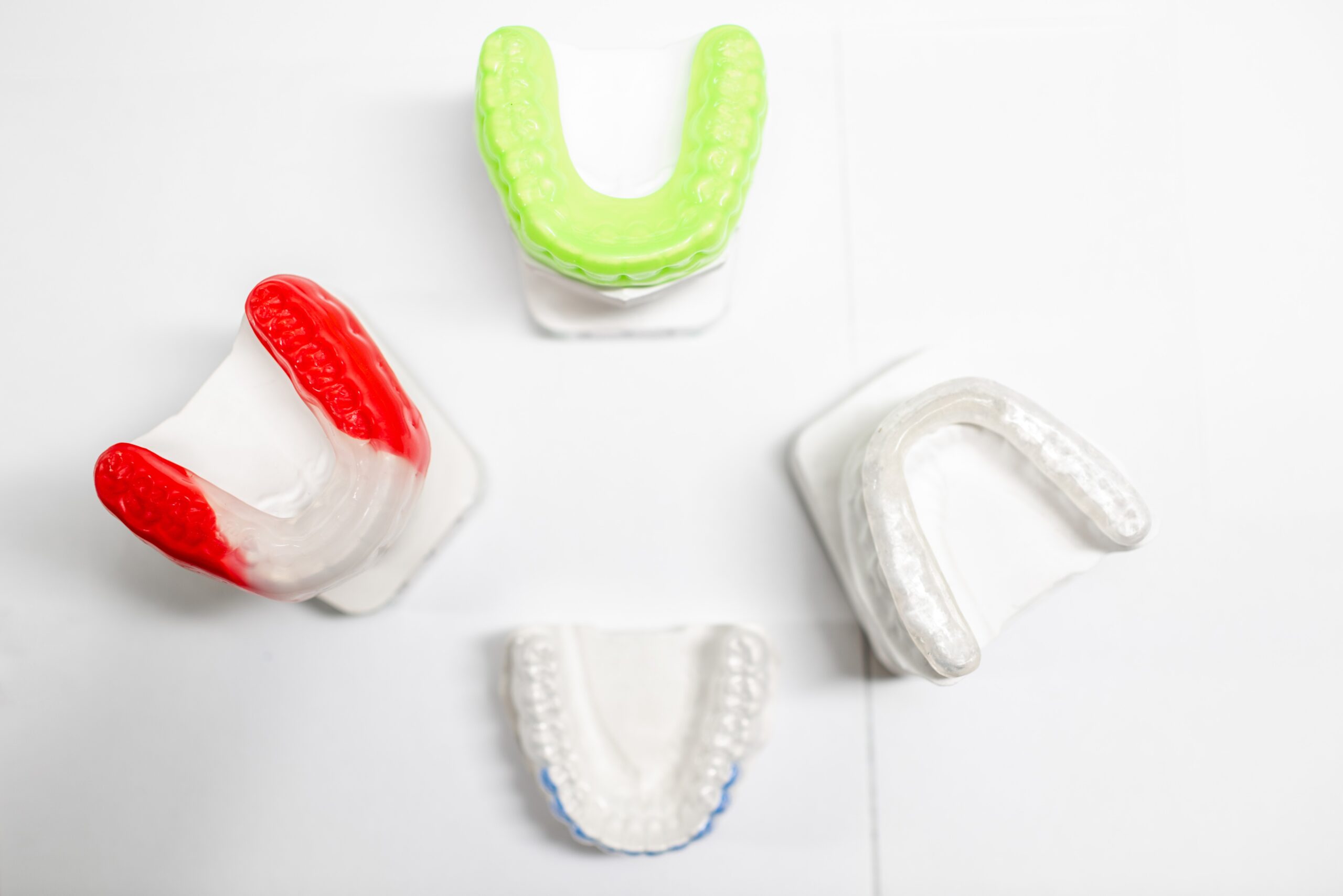
Benefits of Mouthguards: Understanding Their Advantages
Benefits of Mouthguards: Understanding Their Advantages Anyone who has played contact sport before has been told about the importance of wearing a mouthguard. No matter how old you are, or what sport you play, the advantages of mouthguards give you the protection and the peace of mind that you are safer if an incident does
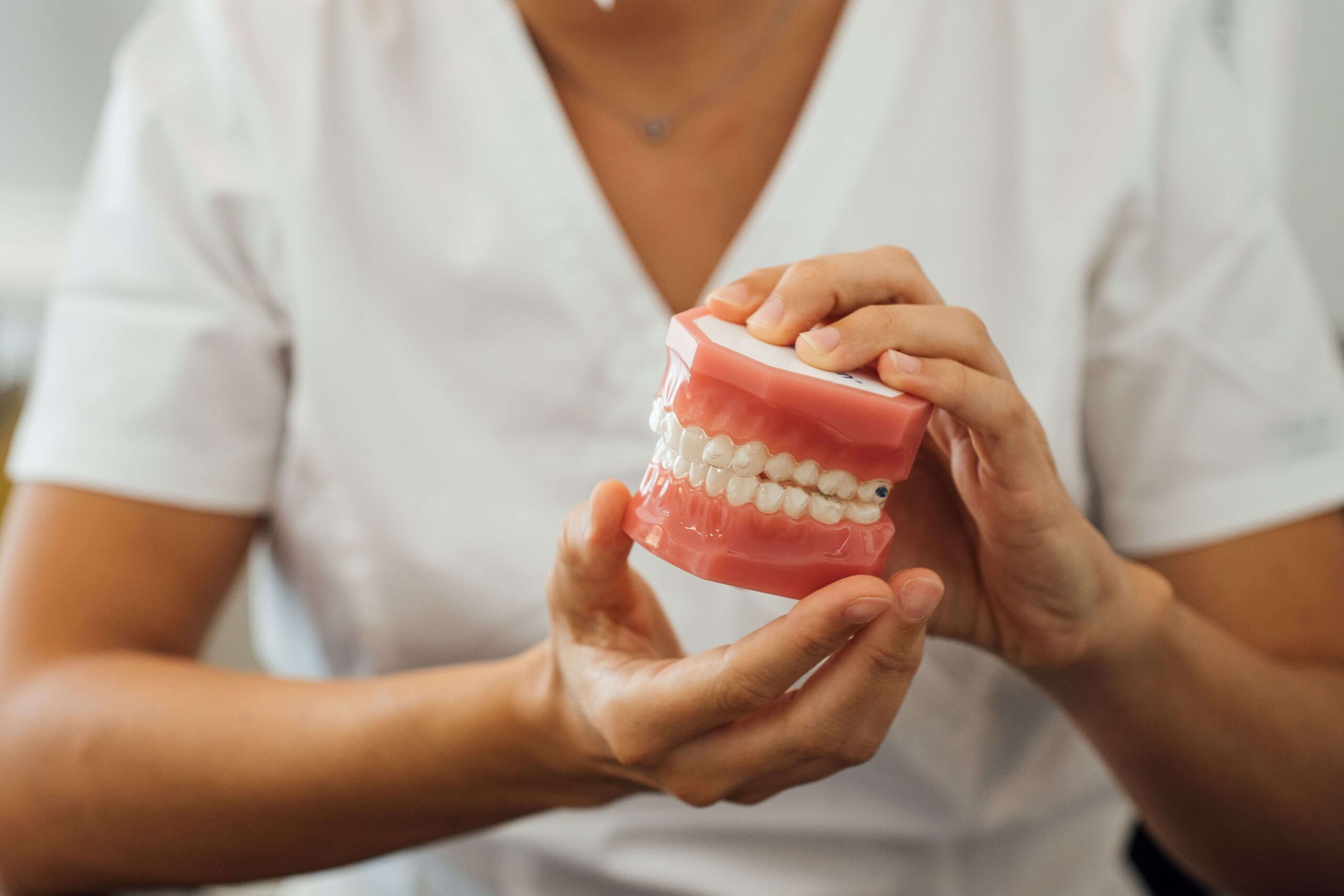
When to Reline Dentures
When to Reline Dentures As a tool designed to improve your quality of living and overall wellbeing, dentures should never feel uncomfortable or awkward to wear. If you are experiencing problems or your dentures simply don’t feel like they used to, it may be time to visit a professional to have your dentures relined. There

Foods to Avoid with Dentures
Foods to Avoid with Dentures Dentures are a majorly beneficial and life changing solution for many people around the world, however, that doesn’t mean they don’t come with responsibility and the need for proper upkeep. It’s important to ensure you’re eating the correct foods and drinking the right drinks that keep your dentures intact and
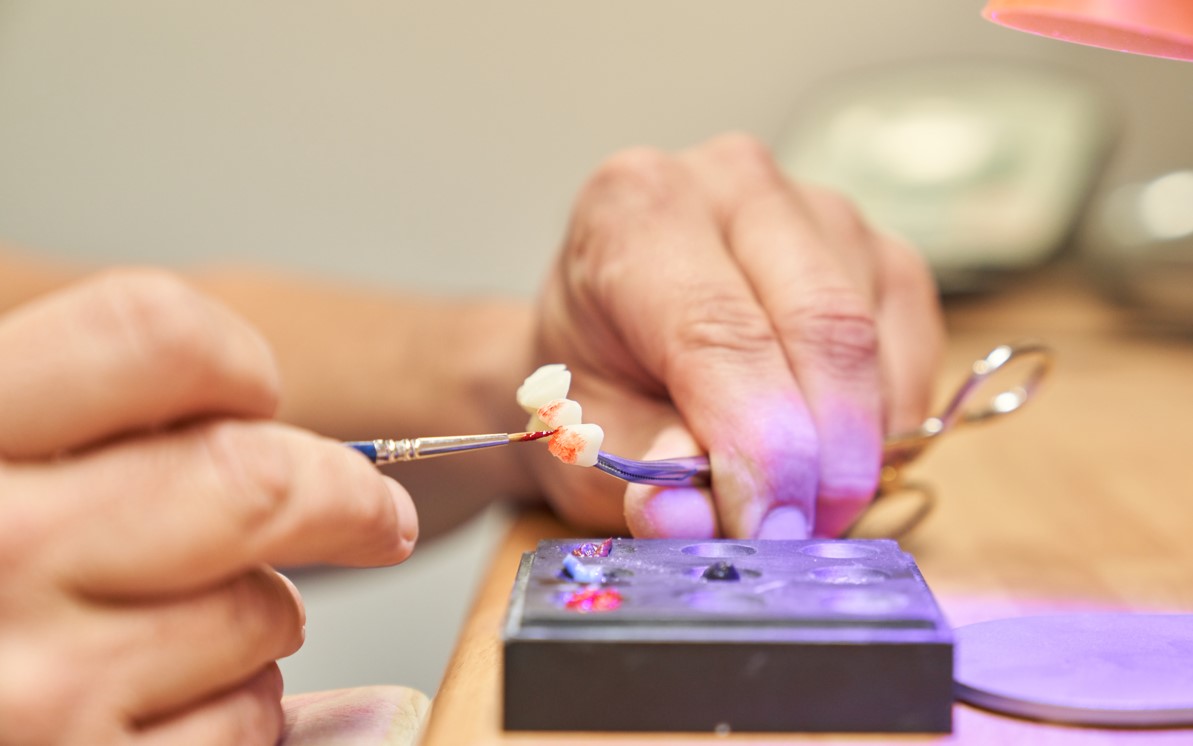
Do Partial Dentures Look Natural?
Do Partial Dentures Look Natural? The simple answer is yes, partial dentures can look natural. But there are a few things you need to know in order to make sure that yours look their best. Partial dentures are specifically designed to match the shade and shape of your existing teeth, so they should blend in
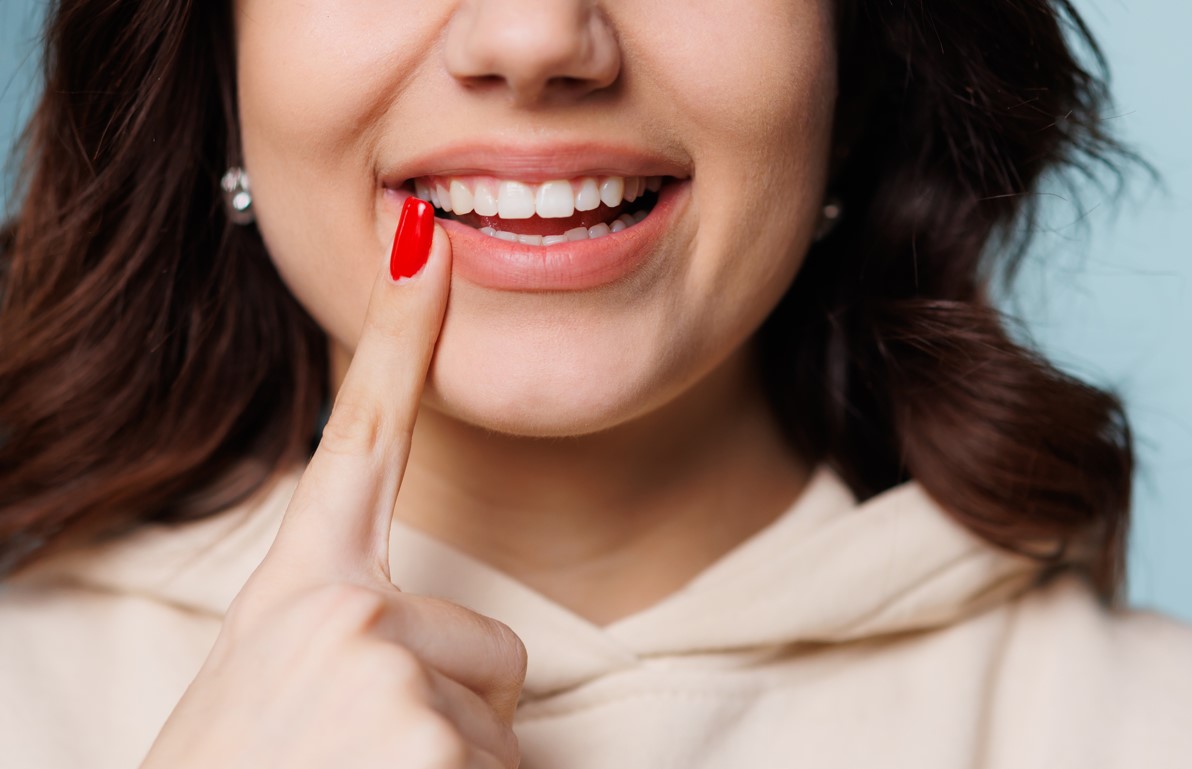
Dentures and Saliva – What You Need to Know
Dentures and Saliva – What You Need to Know If you wear dentures, saliva problems may be an issue that you have to deal with on a daily basis. Dentures and saliva have a complex relationship. Saliva helps to keep your mouth moist and aids in the digestion of food as well. Without enough saliva,
We do whatever it takes to bring you peace of mind
1300 304 092
Call us today
